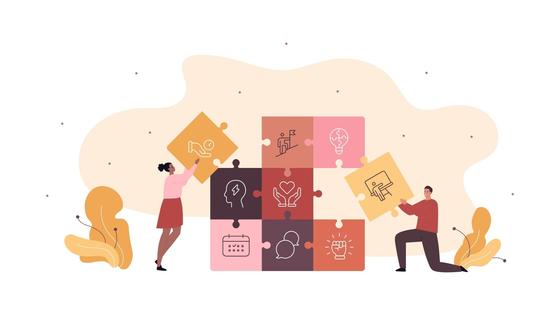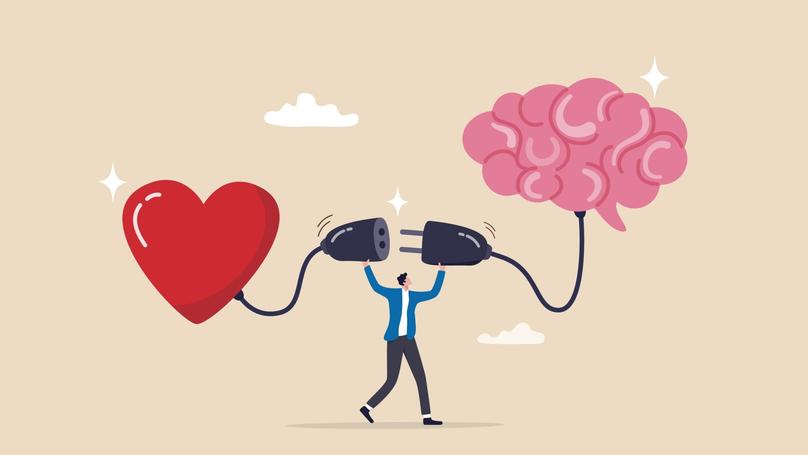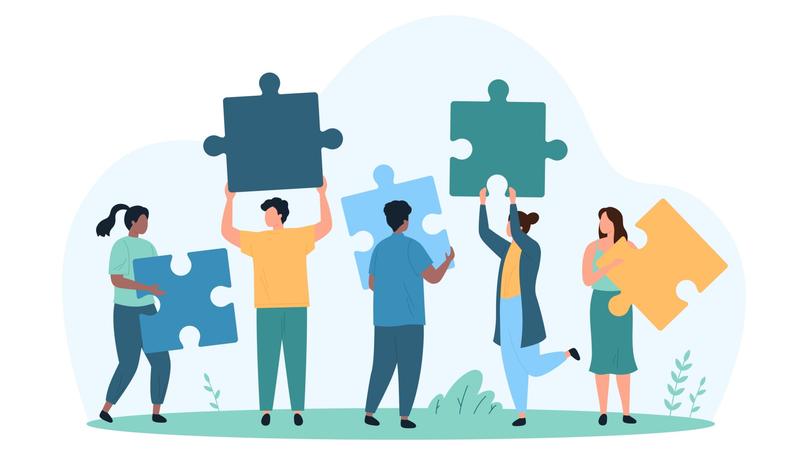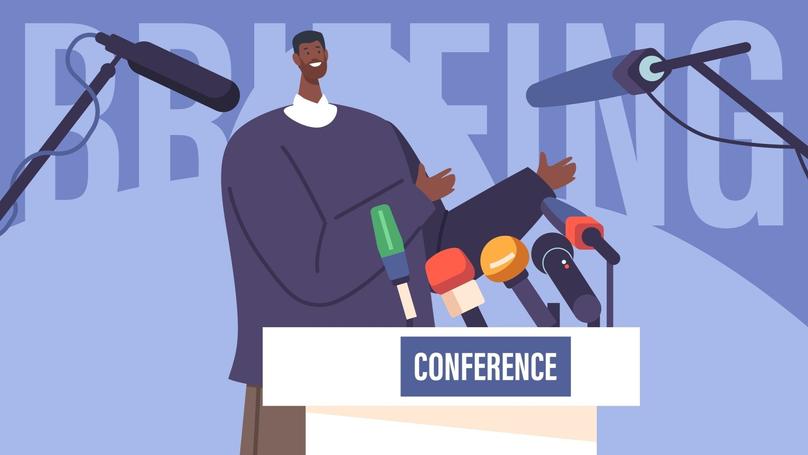Master Top 5 soft skills in your workplace
Soft skills or soft power"—whatever you call them! And, more importantly, everyone—from every corner—keeps emphasizing their importance, making it impossible not to believe that they determine the speed and quality of your career growth.

And they're absolutely right: if your hard skills, acquired in university and through experience, are the walls and roof of your "success" structure, then soft skills are the foundation-or even the ruler that ensures your hard skills are built straight and sturdy. Soft skills define how effectively you'll apply practical knowledge in real life, which is why we're presenting you with the top 5 most in-demand soft skills in today's job market. And, of course, we'll tell you how and where you can develop them without even leaving the office! Spoiler: with Lectera's online courses, of course-because with us, you only need 15 minutes a day, and you can do it during your lunch break, on a plane, or even on the subway.
Skill #1: Mindfulness

Mindfulness is the ability to stay "in the moment," be aware of your actions and the passage of time, and continuously monitor your own state and surroundings. No matter what anyone says, staying mindful non-stop is impossible-you'd go crazy if you constantly observed yourself and everything around you. It's a mode that works on an on/off basis, and you need to know how to turn it on at the right moment-for example, when you need to focus at work, when someone provokes you into a conflict, or simply to rest properly during your lunch break and return to work refreshed.
Mindfulness is a way to feel and control your life better, and it's exactly what you need if you often complain that "life is passing you by" or that you do everything on autopilot, lost in thought. Here's how you can start developing mindfulness right now (or whenever it suits you):
-
Do routine tasks in an unusual way. For example, brush your teeth with your left hand or hold your spoon in it if you're right-handed. The need to consciously control your body activates your brain and neural connections-you'll immediately notice how much more engaged you become in any work process as soon as you disrupt its monotony.
-
Take 5-minute "mindful breaks." Step away from your desk, go to the window, and try one of these: describe all the cars you see on the street; describe the passersby; find 7 green (or red, or yellow) objects. Alternatively, take a piece of chocolate, let it slowly melt in your mouth, and describe its taste, texture, how it felt in your hands, its smell, etc.
-
Track your state 4-5 times a day. Set an alarm and strictly note in your journal: "How do I feel right now? What am I feeling? How does it manifest physically? Why?"
Which Lectera course can help here? "Mindfulness-A Lifestyle. The Path to Your Own Happiness," where you'll develop concentration skills, achieve inner balance, learn more mindfulness techniques, and master stress, anxiety, and self-doubt management.
Skill #2. Emotional Intelligence

Emotional intelligence is not only the perfect mastery of one's own emotions, which makes a person practically impossible to provoke, but also the understanding of other people's emotions, their "reading" through facial expressions, tone, gestures, and overall nonverbal communication. It is emotional intelligence that forms the basis of communication skills, for example, and from it stem the skills of persuasion or negotiation. EI (abbreviated) includes everything related to feelings, from tracking them to being able to choose exactly those words that will elicit exactly the reaction you need from your interlocutor. You can develop emotional intelligence in the following ways:
-
Observe your colleagues during work. Take a piece of paper, write down each person's name, and try to determine what emotion each colleague is experiencing at the current moment. Also list the signs that indicate this. For example: furrowed brows, pursed lips, clicking tongue, flipping through documents quickly - this colleague is probably angry. Try to match physical manifestations of emotions with the emotions themselves. Afterwards, you can ask your colleague whether you correctly identified their current state or not, and thereby check yourself.
-
Keep an emotion journal. Just as you developed mindfulness, you can develop emotional intelligence, but do it even more quickly and frequently. There are also corresponding mobile applications, for example, Daylio. Set built-in reminders and note your current mood every 3-4 hours. There you can also select the physical manifestations you're experiencing now, mark the intensity of emotions on a scale, and leave an explanatory note. This will help you get a more detailed understanding of how and why your mood changes throughout the day.
-
Notice, reduce, and regulate stress in a timely manner. An important area of emotional intelligence is stress management, which will allow you to transform yourself from a sprinter who reaches new heights in spurts into a marathon runner capable of playing the "long game" and not burning out emotionally before each next vacation. As soon as you've identified stress through your emotion journal, immediately resort to methods that help reduce it specifically for you (of course, you need to find them first). For example, physical exercise, meditation, quality weekend time without phones and "zoning out" on video games, walks in the fresh air, etc.
Which Lectera course will help here? "Emotional Intelligence. Becoming Happier and Faster To Succeed" where you'll develop empathy, study the hormonal and biological aspects of emotions, learn to manage them, cope with negative ones, and even develop your own business using EI.
Skill #3. Teamwork

Hollywood movies often promote to us that being a lone wolf is great, and that in a competitive market this is the only way to achieve incredible heights. But not so fast! Read interviews with famous people, for example, Warren Buffett or Steve Jobs: all the greats of this world stand at the head of their own team, care for it, develop it, and support it. You will never achieve such success alone as you can achieve with like-minded people. Well, and that's not to mention that if you are a performer, not an entrepreneur, and work in an office, you will have to get along and cooperate in any case, whether you want to or not. Here's how you can make your teamwork better:
-
Start attending corporate events, team-building activities, and joint lunches. And if such events are not held, initiate them yourself! And most importantly, don't attend them just for the sake of attendance, but communicate. Set yourself the goal of learning at least 2-3 main interests of each colleague, which university they graduated from, how they got into the company, what they usually do on weekends. And most importantly, remember everything they tell you.
-
Ask for help and offer it. Of course, when it's really necessary. Don't know how to work with this new program? Ask someone to teach you and show you how to do it correctly. Noticed that a colleague is swamped and doesn't have time to print documents? Offer to do it for them. Don't forget about boundaries, of course, and don't turn this into delegation. Help does not equal performing someone else's duties.
-
Give and request feedback. If you are participating in some joint project with the whole team, ask whether you can do something better, whether it's worth adjusting the work, whether everyone understands their current tasks and the current stage, etc. At this rate, you might even become the team's informal leader!
Which Lectera course will help here? The course "How to build a dream team: tools to achieve common goals", which will be especially useful to you if you are a manager or dream of becoming one someday. Learn to motivate people, give constructive feedback, resolve conflicts, recruit new talented specialists, and properly unlock the potential of your subordinates or colleagues.
Lectera’s Online Courses by topic
Skill #4. Time Management

Or, in short - "the ability to get everything done everywhere." Time management - that very thing we always lack so much, yes, yes. However, it will start being enough as soon as you master time management techniques and methods. This is a huge set of various separate practices, among which you can choose what suits you specifically, and simply train yourself to use them on a regular basis through practice. For example, try:
-
The legendary "Pomodoro" method (or Pomodoro, or Tomato - it's all the same technique). Its essence lies in using a timer: you work for 25 minutes, then rest for 3-5 minutes. Over time, you can increase the work intervals, and the rest intervals, for example, can be reduced or also increased proportionally. Perfect for those who have difficulty maintaining focus on a single task.
-
Decomposition. Are you afraid to tackle tasks because they seem too big and complicated? Understandable, this really triggers fear of failure and provokes procrastination. In this case, break one big task into small steps and focus on completing them sequentially, crossing out completed items in your to-do list (it's satisfying - writing things down and crossing them out! Try it!). For example, instead of "Prepare a report," write "Calculate sum N," then "Calculate sum B," then "Create a chart based on N and B," and so on.
-
"Eat the frog." How would you prefer to eat a frog if it were the most disgusting dish on the holiday table, surrounded by various exquisite desserts and appetizers? Wouldn't it be better to swallow the frog first, right away, and then enjoy the meal and chase it with something tasty? It's the same with tasks: do the most difficult, unpleasant, and scary tasks first thing in the first half of the day, and leave the more pleasant and easy tasks for the evening.
Which Lectera course will help here? The course "Time Management for Work" where you'll learn even more techniques for organizing work and managing time, learn to identify and defeat "time wasters," set long-term tasks, plan, create schedules, and focus on important goals.
Lectera’s Online Courses by topic
Skill #5. Public Speaking

Public speaking will be useful to you by no means only for public presentations, but also for personal life, for example, if you want to win over a beautiful companion or become the life of the party. After all, this is the ability to speak, and we have to speak throughout our lives in different situations and with completely different people. Finding an approach, making people like you, arguing competently, conveying the right thought and making the best impression - all this is possible thanks to public speaking. And here's how you can master it on your own:
-
Record yourself on video and analyze. For example, during communication with a group, during a conference or reading a report, or simply at home when you're telling something on camera. Watch the recording and pay attention: whether your gestures match the rhythm of the story and whether they are appropriate (this is very important), whether you stumble, what shortcomings you can identify in your speech and performance, and what you're definitely good at.
-
Watch speeches by famous speakers. For example, Steve Jobs' speech to Stanford graduates. See how well he emphasizes points in his speech using voice and gestures, how he carries himself, how he controls his nonverbal communication, makes pauses, etc. Borrow techniques, learn from those you admire.
-
Develop your memory and try tongue twisters. Voice actors, theater and film actors have many techniques to make their speech clearer and more beautiful, up to reading lines with an apple in their mouth. It's also important not to read from notes, but to memorize the information you want to convey and practice. Speak more, more often, louder, look for reasons and opportunities to speak. Also, be sure to work on your fear of public speaking and public attention!
Which Lectera course will help here? The course "Legendary Speaker. The Art of Public Speaking" where you'll study techniques of great orators from history, analyze speeches by Lincoln, Churchill and Steve Jobs, learn to use storytelling, deal with nervousness and work out speech structures.
Share this with your friends via:
Latest News

A significant stage in the development of the alternative education system has begun in West Northamptonshire in the UK: the County Council is actively calling on parents, guardians, and trustees to participate in shaping the future of this key area.

Outwoods Primary School in Atherstone, Warwickshire, having experienced deep sadness after the loss of their famous cat, Silla, has found solace in a new pet – a Maine Coon named Aloysius O’Hara.

In modern universities, artificial intelligence, and in particular ChatGPT, is rapidly transforming from a controversial tool into a full-fledged student assistant.

An innovative educational project is gaining momentum in UK primary schools, aiming to change attitudes towards video games.

The Massachusetts Institute of Technology (MIT) presents MIT Learn – a revolutionary online platform that opens a “new front door” to access university knowledge and resources.












 Test. Check Your Social Media Dependency Level!
Test. Check Your Social Media Dependency Level!
 Test: What Business is Right For You?
Test: What Business is Right For You?
 “I’m Here for the Long Haul”: When Loyalty to a Company Becomes Toxic
“I’m Here for the Long Haul”: When Loyalty to a Company Becomes Toxic
 Test: How Prone Are You to Abusive Behavior as a Manager?
Test: How Prone Are You to Abusive Behavior as a Manager?
 Test. What superpower would you possess if you were a superhero?
Test. What superpower would you possess if you were a superhero?
 Test. What Should You Let Go of Before Winter Ends?
Test. What Should You Let Go of Before Winter Ends?
